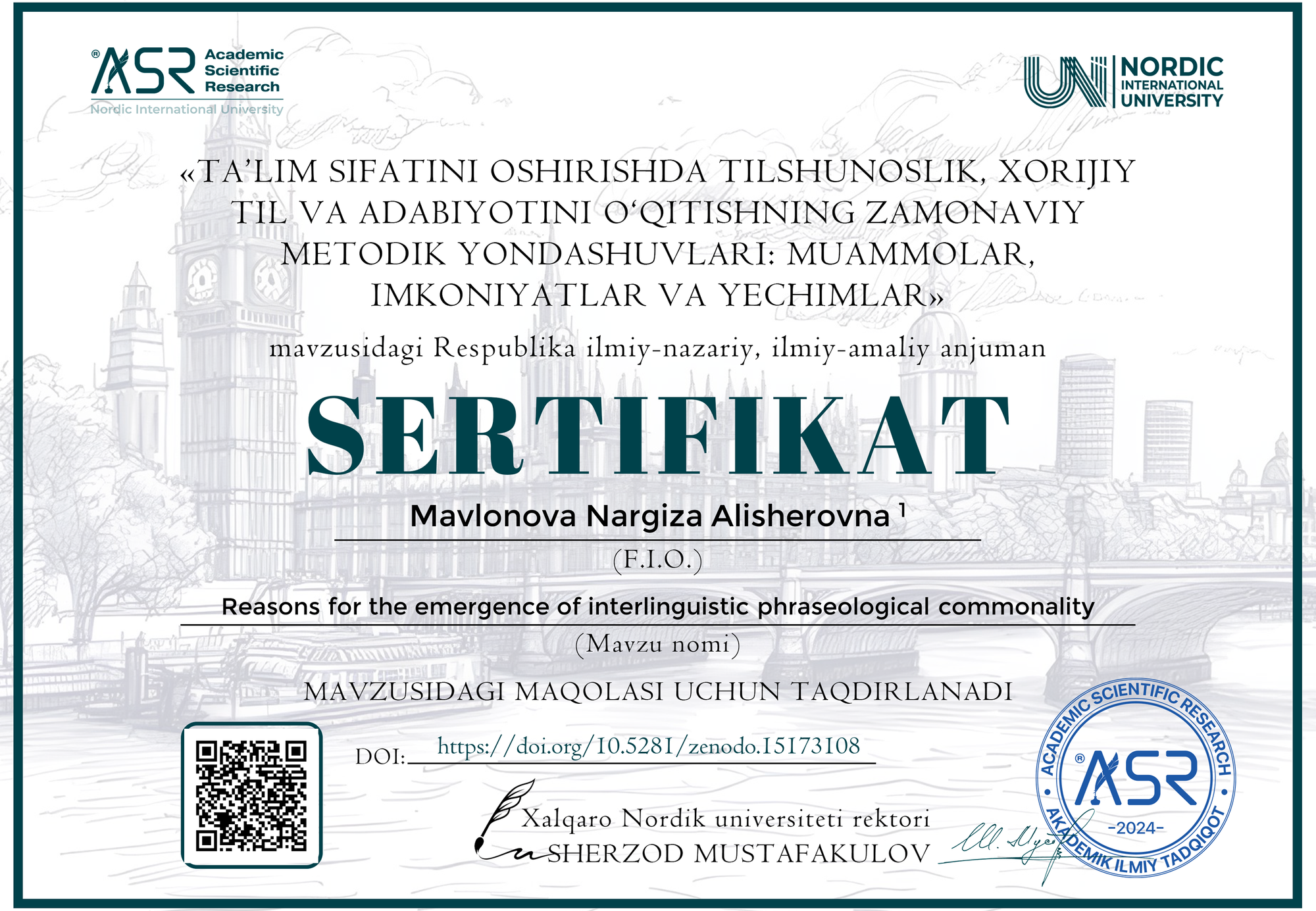Mavlonova Nargiza Alisherovna 1
DOI: https://doi.org/10.5281/zenodo.15173108
Google scholar: https://scholar.google.com/scholar?hl=ru&as_sdt=0%2C5&q=%22REASONS+FOR+THE+EMERGENCE+OF+INTERLINGUISTIC+PHRASEOLOGICAL+COMMONALITY%22&btnG=
Zenodo community: https://zenodo.org/records/15173108
Nordic_press journal: https://research.nordicuniversity.org/index.php/nordic/article/view/2249
MAQOLANI YUKLAB OLISH
SERTIFIKATNI YUKLAB OLISH
REVIEW:
This scholarly article presents a comprehensive and well-structured examination of the causes and mechanisms behind the emergence of interlinguistic phraseological correspondences. The author successfully explores both linguistic and extralinguistic factors, offering a theoretical framework grounded in etymology, comparative linguistics, and cultural analysis.
The paper effectively demonstrates how mutual borrowings, shared cultural elements, and parallel conceptual thinking across languages such as English, Russian, and Uzbek lead to phraseological similarities. The discussion of phraseological borrowings, particularly from English to Russian and vice versa, as well as the identification of typological and genetic foundations, is thorough and informative.
The author’s focus on the influence of literature, media, and historical ties in fostering lexical and phraseological integration adds a sociocultural depth to the analysis. Additionally, the methodological approach of identifying more than 400 English-Russian-Uzbek phraseological correspondences strengthens the empirical foundation of the study.
To enhance the paper further, it would be beneficial to provide specific examples of phraseological units discussed, ideally supported by corpus data. Including visual or tabular representations of key classifications or correspondences would also improve the clarity and accessibility of the findings.
The article’s language is clear, formal, and academically appropriate. The literature cited is relevant and sufficient, representing both classic and contemporary contributions to the field of phraseology and linguistic contact studies.




